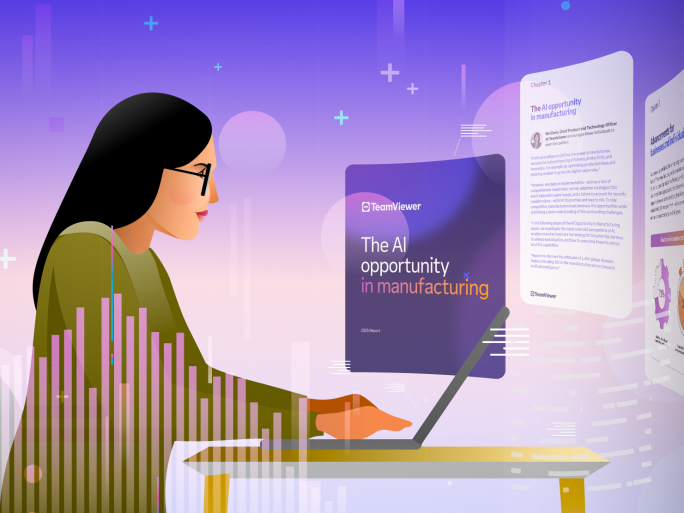AI is Transforming the Manufacturing Industry

According to TeamViewer’s report “The AI Opportunity in Manufacturing,” industry leaders anticipate the greatest productivity boom in a century.
The use of AI in production and manufacturing has significantly increased, driven in part by global challenges such as labor shortages and pressure on global supply chains. Today, 78% of executives in the manufacturing sector use AI on a weekly basis—up from 46% just last year. Additionally, 72% of respondents believe that AI implementation in their companies is already well advanced.
Companies are primarily using AI to automate customer support (28%), analyze data (23%), and optimize supply chains (19%). Other applications, such as forecasting and decision-making, are also gaining importance. “It’s particularly the generation of digital natives that is driving AI adoption within companies and helping to integrate the technology into existing manufacturing processes,” says Mei Dent, Chief Product and Technology Officer at TeamViewer.
AI as a Key Driver of Efficiency
The non-representative survey shows that AI is leading to significant improvements for both businesses and employees in the manufacturing sector. 77% of decision-makers view AI as a key factor in improving efficiency by automating routine tasks and relieving employees of repetitive work. 78% of respondents say AI enables them to focus more on strategic decisions. Beyond increasing efficiency, AI also enhances product quality and reduces errors—crucial in a field where precision is paramount. From a financial perspective, 71% of manufacturing companies expect AI to boost revenue in the coming year, forecasting growth of 188%.
Barriers to Broader Adoption
Despite AI’s potential to transform manufacturing, several challenges are slowing its implementation. Security concerns top the list: three-quarters of decision-makers in the industry cite AI-related data risks—a figure higher than the cross-industry average. Other significant barriers include lack of training (42%), high implementation costs (30%), and limited financial resources for scaling.
Nevertheless, decision-makers in the manufacturing sector remain optimistic: 8 out of 10 expect increased AI investment in the coming year. Overcoming these obstacles through education, strategic financial planning, and clear communication of AI’s long-term value is essential for broader acceptance.
The Need for a Chief AI Officer
Investing in AI is essential to fully tap into its potential in manufacturing. Training plays a critical role in this process: nearly all respondents agree that more training is needed to mitigate risks, with 74% supporting additional programs. Just over two-thirds of respondents advocate for the appointment of a Chief AI Officer to lead strategy and ensure effective implementation.
TeamViewer surveyed 1,400 decision-makers in IT, business, and production engineering across the UK, France, Germany, Australia, Singapore, and the United States. The AI Opportunity in Manufacturing report is based on these findings, with a specific focus on the responses from 105 professionals in the manufacturing sector.